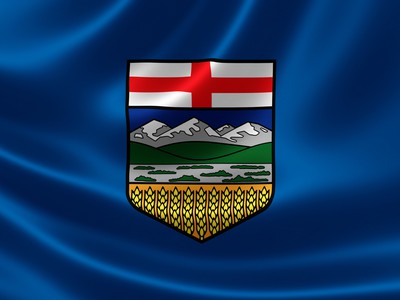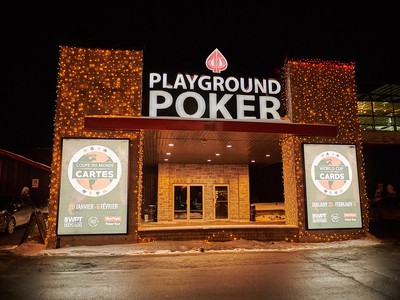The whole purpose of the coalition is basically asking the government to modernize the current system, which is outdated.
A new industry-led coalition in Québec hopes to convince the provincial government to adopt a regulated market for iGaming similar to the one built in neighboring Ontario that launched last year.
The Québec Online Gaming Coalition (QOGC), which formed late last month and includes several major operators, also says it wants to work with the government to create a regulated space for iGaming in the province — one based on private operators paying for a license, and one that includes an independent regulator whose mission would include responsible gaming.
In a twist, the QOGC says the framework Ontario put together should be palpable for the Québec government, and any recommendations from Ontario should sound familiar. That’s because Ontario used an academic report on iGaming in Québec — and paid for by Québec taxpayers — as a tool to create a successful market in Ontario.
QOGC: Québec’s iGaming Model Needs Update
For the QOGC — whose ranks include DraftKings and the parent companies of BetMGM, BetRivers, and FanDuel — their cause starts with the model the Québec government has set up for iGaming in the province.
In short: the provincial lottery, Loto-Québec, holds a monopoly on iGaming. It offers online casino gaming and sports betting through its Mise-O-Jeu platform and online poker through Espace Jeux. And there isn’t an independent regulator for iGaming — Loto-Québec polices itself.
“The whole purpose of the coalition is basically asking the government to modernize the current system, which is outdated,” QOGC spokesperson Nathalie Bergeron told Poker Industry PRO in an exclusive. “It dates from the time when people had to physically go to a casino or a racetrack to place a bet.
“With the reality of the availability of online gaming, the government needs to start taking [the need for modernization] into account.”
Bergeron said Loto-Québec’s monopoly on iGaming in the province is increasingly only in name only — with players taking to the grey market instead, a development with its own set of consequences, especially as it comes to protecting players in the province.
“With the internet being what it is, now there are no real boundaries, and the availability of the platform makes that monopoly more of an idea than a fact right now.”
She added that an independent regulator would be a more appropriate entity in charge of responsible gaming in the province since Loto-Québec functions as an operator.
“Most Québécois don’t realize that Loto-Québec self regulates,” Bergeron told PRO. “Loto-Québec has a commercial activity mandate, which is to generate revenue for the Québec government through gaming activities.
“But they are also responsible for promoting responsible gaming. In 2014, [the Nadeau report] pointed out that this was nonsense — it was 'like asking Dracula to supervise a blood bank.’ Their words, not mine, but I think the image speaks for itself.”
Ontario Used Québec-Funded Advice
We are wanting to make the industry move forward, so that’s why we’re not just asking for the licensing system — we need that independent body as well.
Bergeron referred to a report that a previous Québec government had requested of academics led by Dr. Louise Nadeau. The researchers “presented their findings in 2014”: https://www.groupes.finances.gouv.qc.ca/jeu/pub/AUTFR_Jeu_En_Ligne_FR.pdf”, but Québec shelved the report.
Ontario regulators then used the Nadeau report to create the regulated market in Ontario.
“It’s hard to say why they shelved it, [but] what I think is interesting to point out is that the recommendations from the Nadeau report are exactly what Ontario has put in place,” Bergeron said. “So, a report that’s been paid for by Québec taxpayers has been used to inspire other lawmakers, which I find ironic.”
But she pointed out that two of the recommendations in the Nadeau report are exactly what the QOGC is asking for — implementation of a licensing system for private operators and the creation of an independent regulatory body that would supervise iGaming in the province.
“We are wanting to make the industry move forward, so that’s why we’re not just asking for the licensing system — we need that independent body as well,” she said.
Meeting With Finance Ministry Scheduled
We’ve seen Ontario implement this, and the results after one year are quite convincing. We feel that the Québec government needs to come to the same conclusion as we have.
According to Bergeron, the next step is for the QOGC to meet with the province’s Finance Ministry since it would be the ultimate arbiter of any changes to the province’s current system for iGaming.
“We have asked for a meeting, and they have accepted our request,” Bergeron said. “We will be meeting in the coming weeks. We’re coming to the table with the objective of working hand-in-hand with the Québec government to help create that framework and make things more forward collaboratively.”
QOGC doesn’t plan to lobby elected officials in Québec directly.
“At the moment, it’s about getting the Finance Ministry to come to the realization that there needs to be an update to the system to reflect what is now the reality in 2023,” Bergeron said. “Our objective right now is to start a dialogue and have fruitful conversations. We’ll take the time it takes, but we believe that this is something that is necessary here in Québec — to address the current system.
“We’ve seen Ontario implement this, and the results after one year are quite convincing. We feel that the Québec government needs to come to the same conclusion as we have.”
No Timetable For Launch
It will be up to the government to decide what is acceptable and what works best for Québec.
Bergeron said the QOGC did not have a timeline in mind for when it hoped to launch a regulated market for iGaming in Québec.
“It will be up to the government to decide what is acceptable and what works best for Québec,” Bergeron said. “However, Ontario is a jurisdiction that is very similar to Québec. What they have put in place is doable here, and it makes a lot of sense. And based on the recommendations of the Nadeau report, it goes with what the experts in the industry here are already saying.
“Obviously, we’re open to different models or different items from throughout the world that would supplement or improve the Ontario model, we’re open to it. But it will be up to the government. We’re just suggesting this [model] because it works.”





